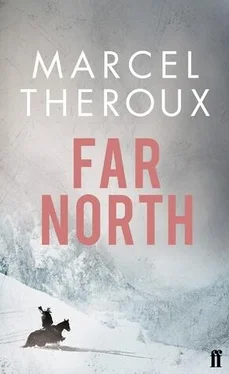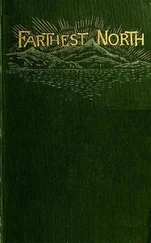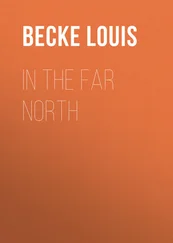To be honest, I was surprised that we didn’t lose more, but the gang-master knew his work: he knew when to push us hard, and he knew when to ease off when we were floundering. He kept discipline among the guards, and though there was drinking among them, they never went beyond common or garden rowdy.
He rode up beside me one day and started speaking in a low voice and without any introduction. ‘I hear you fell out with my brother Silas.’
He was ambling just slightly in back of me, so I had to turn at an odd angle and look up into the sun to see his face. I told him he must have been mistaken as I didn’t know anyone of that name.
‘I’m Caleb Boathwaite,’ he said. ‘My brother Silas is who sent you here.’ He had a kerchief pulled round his nose against the dust and now he lowered it.
I said nothing.
‘He tells me you’re a woman too. I took you for a man that time we met outside the city limits of — now what place was it now?’
‘Evangeline.’
‘That’s right. I’ve been racking my brains to think why you left that place. Someone like you, on th move, getting mixed up with my brother. It makes me nervous.’ He smiled as though to say that nothing in the wide world could ever make a man like him lose his cool.
I could feel my cheeks burning behind their layer of dust but I stayed silent.
He looked at me for a few moments and then spurred his horse to the front of the line.
He never spoke to me again after that, but I noticed now and then that he would watch me, and when he wasn’t he had detailed one of the guards to give me closer attention.
*
Once I knew they were related, I saw lots of likenesses between Caleb and his brother the Reverend. They both had the same thin noses, and those smart eyes that weigh you up in a second. If anything, I preferred Caleb of the two of them, since he wasn’t apt to prettify what he was doing with the name of religion. He wasn’t self-deceived. But I got to know him better in time, and I learned he was more dangerous. That look he had I’ve seen on a few men, and it never boded well. In other times, it would have been the look of a sea captain, or an explorer, pushing his men into an unknown latitude, or a military general, perhaps, of the most practical and ruthless kind. But in these times of ours, the material of conquest was much more limited, and he had turned out a trader in human flesh.
*
We all felt we had an idea where we were headed for, but no one knew for sure. Rumours would pass through the line about our destination, a different one each day. Someone would say he’d overheard the guards saying we were going to fight in a war. Another would say that the base was a mine and we’d be working miles underground. I tried not to think that far ahead, just sticking to the moment at hand, keeping marching, holding my nose and eyes clear of the dust.
There wasn’t a soul to be seen on that road, but now and again you’d see a place that looked like it might house someone — there’d be a couple of chickens perhaps, or a row of beans in the garden. The guards would scoop up anything that could be eaten and we’d move on. I often wondered about whose meal they’d taken. I suppose whoever it was had learned to hide the moment they saw our dust on the road.
By the beginning of June there was a kind of laggardliness in the line that no amount of cajoling or threats of beating could cure us of. Something in our bones sensed the object of our journey growing nearer, and the fear of what was to come made our feet drag.
*
It was usual for us to stop and make camp towards the end of the day. Although you couldn’t tell by looking at it because it seemed so straight, the road had been making a slow arc to the south. The trees had changed and there was more variety among them: walnuts as well as birches, elm, willow, limes. I’d never been this far south in my life before. I almost missed the arctic summer. In the Far North, there’d be no night at all by now, round-the-clock daytime, and that always gave me a jolt of energy that I enjoyed. But where we had fetched up, the day unravelled into darkness around nine.
We had been growing jumpier by the day. Whereas before, the spurs off the highway had been rare, now we passed more and more of them. There were road signs too, blackened and twisted, and, or a rin any lettering I could understand, but still keepsakes of something, mementoes of the past.
I thought of all the other humans who had looked on these signs, arriving here from the west with a sense of wonder and hopefulness as they came to start lives in these cities, a late chapter in the story of humanity. How late, they could never have guessed.
And I thought of Ping. How lucky for her that she had been spared this. Sometimes I looked at the guards and wondered if one of them had fathered her child. I could have been fooling myself, but I felt that Boathwaite was too cold a fish to have done a thing like that. Was it him? The horseman with the Tatar eyes? Or the older one in the patched jacket, who ate with his knife, and whose slow movements breathed his contempt of us? Or the young one with the sweet face, the most junior of the whole crew, who gathered their plates after their mealtimes, and fetched fire for their smokes?
We’d hear them talking and laughing in the evenings, but too far away to make any sense of it. All of them must have had stories like mine and Shamsudin’s. Boathwaite was the child of settlers like I was. One of the others was part-Tungus. There were Russians and a couple of fellows who looked like they were from the Caucasus, reddish of hair with joined-up eyebrows, gold teeth, and big ears.
And I supposed it was just dumb luck that we were in chains and they were on horseback. I told myself that they had had to unlearn their natural compassion, those that had had any, just as Shamsudin had to overcome his squeamishness about slicing up a woman’s face so that he could make her more beautiful. But it didn’t make me hate them any less.
Then one evening, instead of stopping to camp for the night and two of us being sent on a detail to gather wood, we just kept going.
The mosquitoes were like hellfire in the evenings without any woodsmoke to keep them off you, and there were big smears of blood on my arms when I killed them. ‘Damn it,’ I said, ‘they’re eating better than we are.’
‘The first time in my life I am jealous of a mosquito,’ said Shamsudin.
There was only a crescent moon, but the sky was so clear you could see the part of it that was in shadow beside the tiny piece of it that had been gilded by the hidden sun.
Ahead of us, the road forked and we were herded off to the left.
The road ran down and then turned back on itself and up to a gate that was lit with a couple of oil lamps. This was a real gate, not like the gimcrack carpentry at Horeb, but a vast door hung on concrete posts, with a chain fence stretching off into the darkness either side.
It opened without a word from Boathwaite or the guards, and we marched in two by two through the gate, across a large patch of gravel and into a long low hut with three lines of steel bunks stretched along it.
And for the next five years that was my home.
THERE USED TO BE a look on the face of some of the Tungus when they came into our town to trade, or pick up work, of naked, peasant astonishment.
Plenty of them, especially the older ones, had spent time in cities better than ours, but some of the younger ones had never travelled and knew of us only by hearsay.
Think of it: a child of the tundra who knew everything about the movements of the caribou, who knew ninety-seven things you could make out of willow and sinew, who could live for ever on the stingy soil of the Far North, and now he’s walking down a thoroughfare, gazing at a child holding a balloon, or a woman with a shopping basket, or the great glass panes of the bakery, pulled every which way by the sudden variety of what’s around him, getting bumped and jostled by passers-by and jeered by rude kids.
Читать дальше












